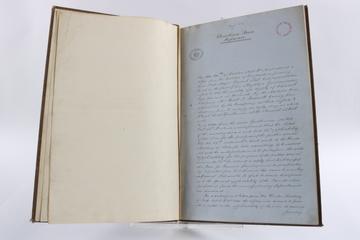
Noad, Henry Minchin 1815 - 1877
- Nationality:
- English; British
(1815-1877), electrician
Henry Minchin Noad was born at Shawford, near Frome, Somerset, on 22 June 1815. He was educated at Frome grammar school and shortly after, he commenced the study of chemistry and electricity. About 1836 he delivered lectures on these subjects at the literary and scientific institutions of Bath and Bristol. He next examined the peculiar voltaic conditions of iron and bismuth, described some properties of the water battery, and elucidated that curious phenomenon, the passive state of iron. He joined the London Electrical Society shortly after its foundation in 1837.
He published various textbooks which became crucial resources for budding electricians and telegraph engineers for much of the rest of the century. In 1845 he went to London and studied chemistry under August Wilhelm Hofmann in the newly founded Royal College of Chemistry. In 1847 he was appointed to the chair of chemistry in the medical school of St George's Hospital, which he held until his death. In 1848 he contributed a treatise, Chemical Manipulation and Analysis, Qualitative and Quantitative, to the Library of Useful Knowledge. This work was widely regarded as a reworking of and a successor to Michael Faraday's book of the same title published in 1827.
About 1849 he obtained the degree of doctor of physics from the University of Giessen. In 1850–51 he conducted, jointly with Henry Gray (the author of Gray's Anatomy) an inquiry into the composition and functions of the spleen. On 5 June 1856 he was elected a fellow of the Royal Society. Noad next experimented on the chemistry of iron, and in 1860 contributed the article ‘Iron’ to Robert Hunt's edition of Ure's Dictionary. This led to his appointment as consulting chemist to the Ebbw Vale Iron Company, the Cwm Celyn, and Blaenau, the Aberdâr and Plymouth, and other ironworks in south Wales. In 1866 he became examiner of malt liquors to the India Office, and in 1872 an examiner in chemistry and physics at the Royal Military Academy, Woolwich.
Noad died at his home, East Cowes Villa, Lower Norwood, London, on 23 July 1877.